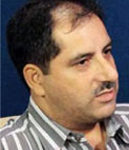It is time to make worshippers understand that faith cannot be amplified by loudspeakers. Decibels are not measures of faith.
By Iftikhar Gilani
Sonu Nigam’s choice of words to highlight the important issue of blaring loudspeakers may be questionable, but the subject demands utmost consideration. No one doubts that the major culprit of noise pollution in India is the unregulated use of loudspeakers for religious purposes, and also revelry. A decade ago, I had rented a house in Delhi bordering Malviya Nagar, a Hindu-dominated area, and Hauz Rani, a locality with a predominantly Muslim population. As a journalist’s duties demand, I used to reach home around midnight. It was Ramzan, and I was looking forward to the few hours of sleep after dinner, as I had to wake up early to prepare for fasting. But the loudspeakers at the local mosque would blare every 15 minutes, reminding the faithful to wake up at Sehri time.
Night-Long Wake-Up Calls
I held my peace for a few days. Finally, I walked up to the Maulvi, pleading him to stop the night-long wake-up calls, as in these modern times people have time-keepers and do not depend on his pleadings. But the Maulvi was adamant. He assembled a few more people who first shouted at me, and then tried to make me understand that it was their style of taking revenge on the nearby Hindu locality as they would also blare their loudspeakers during their festivals, particularly Sharada Navaratri. In the nearby Gurdwara, they said, the Granthi starts playing the tape recorder on the microphone and then goes to sleep himself, waking up the entire neighbourhood. Such is the kind of civility that people practise.
The fact is that the rampant use of loudspeakers does not merely cause annoyance and spoil one’s sleep (which, according to the Supreme Court is a fundamental right), but there is much more to it. It decreases human efficiency, causes hypertension and blood pressure to those who are living nearby, to the extent of causing temporary or permanent deafness. With increasing population, the number of religious places has also increased”which, in turn, has also increased the number of loudspeakers.
Loudspeakers during Taraweeh
The Ministry of Islamic Affairs in Mecca has ordered mosques in the Holy City not to deploy loudspeakers outside during Taraweeh (Ramadan prayers), except during calls for prayers, Friday prayers, and Eid prayers. Mosques would only be allowed to use exterior speakers if they do not disturb worshippers at other mosques in the city. The Saudi officials justified the move saying that people living in the vicinity of mosques were annoyed by the high-decibel speakers that may cause deafness. Even in Indonesia”the world’s second-largest Muslim population”people have been complaining about the ‘loudspeaker war’ in their neighbourhoods. Measures have been taken to ensure that only residents in the immediate area are in the audible range. According to regulations, mosques also had to ensure that the sounds they produced did not overlap with noises from others nearby, to avoid a ‘war of loudspeakers’ between places of worship in the same area which try to outdo each other by playing sermons loudly.
A Sunni scholar from Saudi Arabia, Shaykh Ibn Uthaymeen, in reply to a query, categorically stated that using loudspeakers atop the minaret for prayers in which Qur’an is recited out loud is something that is not allowed, because it causes a lot of disturbance for people, and other mosques nearby. Quoting Imam Malik, he mentioned that Prophet Muhammad went out to the people when they were praying, and their voices were loud in recitation, and he said: “A worshipper is conversing with his Lord, so let him think about the One with whom he is conversing. Do not raise your voices above one another when reciting the Qur’an.”
Last year, Pakistan’s Punjab provincial government promulgated an ordinance to regulate the use of sound systems, allowing only one loudspeaker in places of worship, including mosques, and only for the azan, Arabic khutba and announcements of death or lost persons or things. It also prohibits the use of a sound system in a place of worship in a manner or at a volume whereby any sound could be heard ten yards beyond its boundaries. An offence under the ordinance is cognizable and non-bailable, and the trial is summary.
It is time to make worshippers understand that faith cannot be amplified by loudspeakers. Decibels are not measures of faith. But yes, compassion towards others reveals the strength of faith. The reality is every religion teaches care and concern for others. If people come to this understanding, tolerance and kindness can flourish.
(Iftikhar Gilani is Editor (Strategic Affairs), DNA).
(Source:dnaindia.com/analysis/column-a-call-to-worship-non-invasively-2419042)


COMMENTS